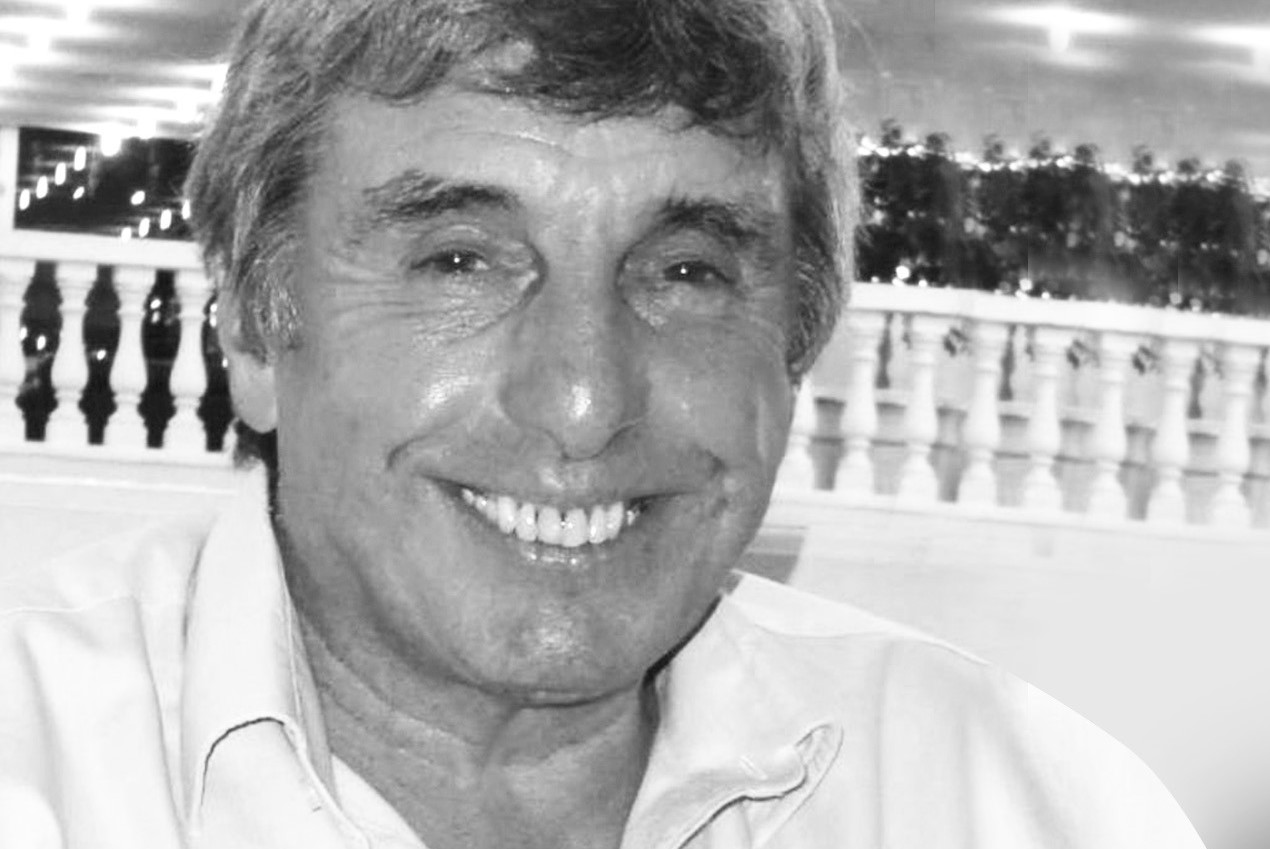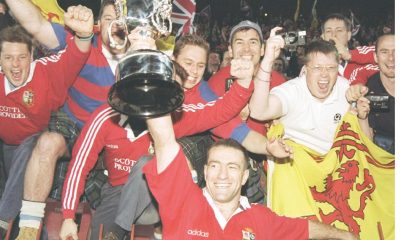
RUGBY MATTERS
You could fill a noisy bar with the journalists past and present queuing to buy David Emery a thank you drink. And, with a bit of pushing and shoving, I like to think I would be somewhere near the front.
Back in March 2013 not only was I made redundant from the Daily Telegraph but this coincided with a football sized thrombosis in my right leg and a terrifying attack of psoriatic arthritis which left my fingers the size and consistency of large pork sausages and my arms and wrists lacking the strength to even lift a cup of tea or open a door.
Bad times. Nonetheless David, below, who I knew by name and towering reputation but only very slightly on a personal basis, was on the phone in late July inquiring about my health and prospects. Not good, I replied.

Undeterred, he invited himself down and took me across to the Copthorne Hotel and ordered afternoon tea where he could see that even getting a sandwich to my mouth was a challenge. Nonetheless he insisted I pen a weekly piece for The Rugby Paper. On a good day I could use the index finger on my right hand and I had all week to peck away. Why not? It would be good for morale. And that’s what I did. Gradually, my hands and fingers eased back into life and I was able to contribute more.
In later life The Rugby Paper and his other specialist sports weeklies were David’s pride and joy. A fearless tabloid man at heart, a Fleet Street legend when sports editor at the Daily Express, he took great delight in hard hitting news stories and blazing 72 point headlines to shake things up a bit. But, unusually in my experience, he also possessed that broadsheet love of definitive match reports and stats, engrossing long reads, historical stuff, proper reportage and columns addressing every issue of the day. Yin and Yang.
It’s no wonder the Express sports desk under him regularly took on and beat both the tabloids and broadsheets. And it is little wonder that he, after leaving the Express, made as good a stab as anybody of giving the UK a specialist sports paper in the image of L’Equipe or Gazzetta dello Sport with his Sport First paper. Ultimately Britain’s obsession for football put paid to that dream but it was a notable effort.
He demanded The Rugby Paper be all enveloping. Top end professional rugby, grassroots weekend warriors, Schools, Universities, Sevens, the Services, Pan European rugby as well as Six Nations and of course the women’s game which he supported from way out. Reporting without fear or favour.
David was a sports nut. I could never really tell if he was a football, rugby, racing, cricket or athletics man and he always encouraged you as a writer to reference other sports and indeed life itself when trying to put rugby in context. For journalists young and old, callow youth or old lag, The Rugby Paper has become the perfect arena in which to play a few strokes.
Frankly, I have no idea why David reached out ten years ago, other than he was a good bloke who had possibly enjoyed, from a distance, my all-round take on sport in general and rugby in particular. I quickly came to appreciate, however, that he also liked underdogs and those who refused to quit, individuals who just kept buggering on. Just like he did for nearly 60 years, not least when we were suddenly confronted with Covid in March 2020 and no live rugby for endless months. The last great journalistic challenge of his career.
He offered just one piece of advice in our near ten years working together. A few years ago he emailed suggesting I start using the personal pronoun in this Rugby Matters column. I had spent 30 years avoiding it like the plague, it was completely banned when I trained with the Courier Group in 1984 and was the preserve of only a very few big hitters at the Telegraph. But David insisted I started introducing the intimacy the personal pronoun conveys. “I had earned the right,” was his precise expression. I trust therefore he would approve of this little tribute, at least in style, if not the gushing substance.
I’ve worked under many bosses in this business. The brilliant, the very good indeed and a couple who were complete incompetents and blaggers. I suspect that’s the same ratio as life generally.
Four stand apart as complete legends. In chronological order they are Reg Hayter who founded the eponymous Fleet Street sports agency; David Welch who revolutionised the broadsheet coverage of sport in Britain; Keith Perry who was Welch’s multi-talented sidekick and understated successor and, finally, David Emery, latterly of this parish but of so much more besides.
There is no pressing need to compare their styles but what can be said in full confidence is that there is absolutely nothing worth knowing about this journalism lark that our illustrious quartet didn’t know, experience and practise. Nothing.


British and Irish Lions
Go with your boy for the British and Irish Lions, Lawrence Dallaglio tells Andy Farrell

Latest News
Bears aim to cash in on Big Day Out

























You must be logged in to post a comment Login